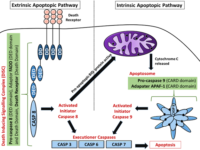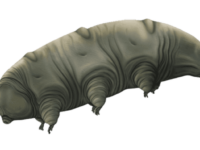Many believe that death is an instantaneous and irreversible event, yet recent research conducted by a group of scientists at Yale University has shown otherwise. The group’s study, published in Nature, found that pumping nutrient-rich synthetic blood throughout the bodies of pigs that had been dead for an hour could reverse the deleterious processes that lead to death following ischemia, the loss of blood flow to the heart.
The group built upon previous research they conducted in 2019, in which they developed an experimental perfusion system called BrainEx that pumped synthetic blood through the blood vessels of pig brains hours after induced cardiac arrest. The system preserved cellular structure and metabolic activity and led to the restoration of neural activity, inflammatory responses, circulation, and blood vessel structure. Following this success, the group worked to create a similar perfusion system, which the group has named OrganEx, to revive cellular activity throughout the entire body. Their recent study examines how cellular activity in post-mortem pigs is affected by this system compared to the current standard perfusion technology: the extracorporeal membrane oxygenation (EMCO) system.
OrganEx acts similarly to a heart-lung machine, which takes over the role of the heart and lungs and pumps oxygen and blood throughout the entire body. However, instead of pumping purely blood, OrganEx pumps a mixture of pig blood and 13 other compounds that can target all organs when pumped throughout the entire body.
To study the effects of OrganEx, researchers created five experimental groups: three were unperfused control groups that varied in the times at which the pigs were tested following death, one consisted of pigs treated with ECMO, and the last group contained the pigs treated with OrganEx.
The results were significant. Six hours after treatment, researchers found that some cellular damage caused by ischemia showed signs of repair and many key cell functions were active again in vital organs such as the liver, heart, and kidneys. The heart also showed signs of electrical activity and was able to contract. Compared to the other groups, pigs in the OrganEx group showed greater responses to glucose, which suggests that metabolic function had been retained due to the treatment.
The OrganEx technology also proved to be significantly more impactful than the ECMO. Genes responsible for maintaining cellular function and repair were more active in the OrganEx group compared to the ECMO group. The ECMO system was also unable to perfuse all of the organs sufficiently and led to tissue swelling, hemorrhage, and the collapse of many blood vessels, which is typical following death. The organs of the OrganEx group pigs showed far fewer signs of these effects.
These results are surprising, as decomposition usually begins quickly after death. According to Zvonimir Vrselja, a neuroscientist at Yale and member of the research team, organs rapidly lose structural integrity within minutes of the heart stopping as a result of the body’s deprivation of oxygen and the subsequent activation of enzymes that digest cellular membranes. However, this study shows that death is actually a process that can be delayed for many hours and that certain genetic processes can be activated to help repair some damage caused by the stopping of the heart.
… death is actually a process that can be delayed for many hours …
The most useful application of these findings will likely be to help save organs for transplantation, which is important given the current shortage of organs that are suitable for transplantation. A research team at the University of Michigan reported that 20% of the organ supply is discarded each year due to the failure of current organ preservation systems, designed to prevent damage caused by the extended absence of an oxygen-rich blood supply. Details about how exactly OrganEx can be used to preserve organs are still unknown, but researchers are optimistic that the transplantation window can be expanded and healthcare workers will soon be able to transport organs over greater distances and store them for longer periods.
The research team also believes that OrganEx’s ability to restore some function in vital organs such as the heart can be used to develop treatments for patients affected by a heart attack or stroke, but researchers will need to conduct extensive future research to develop such a treatment and confirm whether it will be possible to revive organ function to a great enough extent. Future experiments will aim to answer additional questions in order to apply this technology in a clinical setting, such as whether the synthetic solution needs to be adjusted for use in humans and whether the organs impacted by OrganEx could function properly as transplants.
“We couldn’t say that this study showed that any of the organs of this pig were … ready for transplant into other animals. We don’t know that they’re all functioning,” Stephen Latham, the director of the Yale Interdisciplinary Center for Bioethics, said in an interview with CNN. “We’re nowhere near being able to say ‘Oh, my goodness! We’ve restored life not only to this pig, but to any of the individual organs.’”
… this discovery could have revolutionary effects on the treatment of life-threatening medical events and the storage of organs used for transplantation.
Even though many questions have yet to be answered, this discovery could have revolutionary effects on the treatment of life-threatening medical events and the storage of organs used for transplantation. It brings to light the thought-provoking idea that death is a series of events that can potentially be avoided or reversed.
Nature (2019). DOI: 10.1038/s41586-019-1099-1
Nature (2022). DOI: 10.1038/s41586-022-05016-1
American Journal of Transplantation (2020). DOI: 10.1111/ajt.15678
https://www.cnn.com/2022/08/03/health/dead-pigs-restore-cellular-function-scn/index.html
https://www.livescience.com/restoring-cell-function-dead-pigs
https://www.cnn.com/2019/04/17/health/dead-pig-brain-function-study/index.html







Great Article!